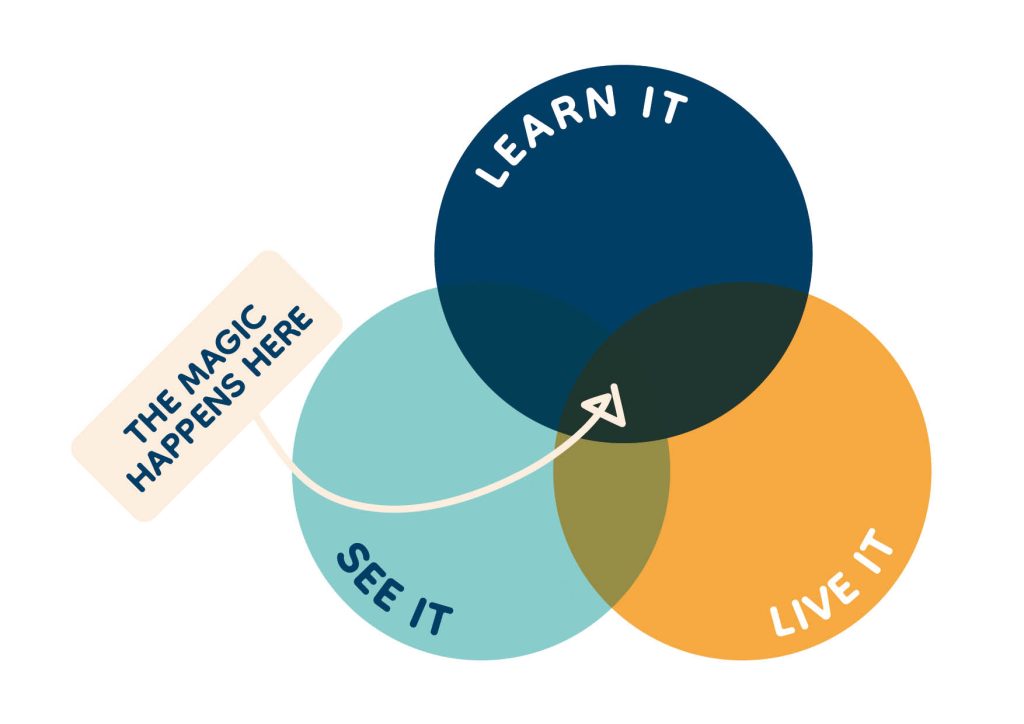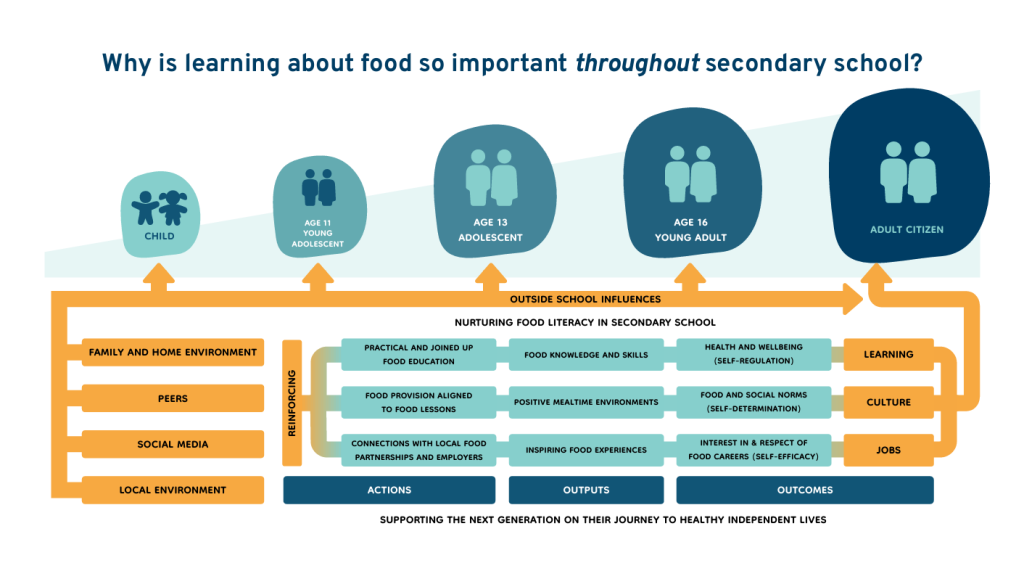
Best Food Forward‘s Food Education Mapping Project (FEMP) has been published. This report offers a comprehensive picture of how food education is taught and experienced in English secondary schools. Capturing the voices of teachers, school leaders and students, it demonstrates both the value of food education and the challenges that risk undermining it.
Key findings
Food education matters. It equips young people with practical life skills, supports wellbeing and inclusion and connects to broader social, environmental and economic goals. But provision across schools is fragmented and inconsistent.
The project found that students learn most effectively when they can:
- Learn it – build knowledge and skills in the classroom.
- See it – experience food embedded in school culture and provision.
- Live it – apply learning through real-world experiences, from cooking at home to engaging with the local food system.
Where schools bring these three strands together, food education becomes transformative. Yet the report shows significant variation between schools in how consistently this happens.
Teachers and students value food as a subject. However, delivery is constrained by reduced curriculum time, declining numbers of food teachers and inadequate facilities. School food environments also matter: in too many cases, unhealthy or inconsistent provision in the dining hall undermines classroom teaching. Real-world opportunities, such as trips and work experience, are powerful but often unequal and infrequent.

Policy implications
The findings come at a critical moment. The Curriculum and Assessment Review, the expansion of free school meals and the government’s National Food Strategy all provide opportunities to strengthen food education.
The report calls for national action, setting out six clear recommendations:
- Protect, resource and extend formal food education in schools.
- Build a national progression framework for food education.
- Recognise food as a powerful discipline with real-world relevance.
- Strengthen whole-school food culture and provision.
- Expand access to real-world food learning.
- Connect food education to wider national priorities, including health, sustainability and skills.
If implemented, these recommendations could make high-quality food education a universal foundation for health, learning and life.
Our contribution
We’re pleased to have supported the delivery of this report through authoring, editing and project management. Myles also chaired the Project Advisory Group, whose expertise and guidance were instrumental in shaping the project.
We’ve enjoyed working alongside the brilliant Best Food Forward and wider project team to help bring together the voices of students, teachers and leaders into a powerful evidence base for change.
Looking ahead
The FEMP report provides a clear framework – Learn it, See it, Live it – for understanding and improving food education in secondary schools. It shows what is working, where the gaps are and how schools and policymakers can respond.
With the right action, food education can be embedded into school life in a way that enables young people to thrive. We hope this report will contribute not only to immediate policy debates but also to the wider advocacy and campaigning work needed to embed food education at the heart of school life.
